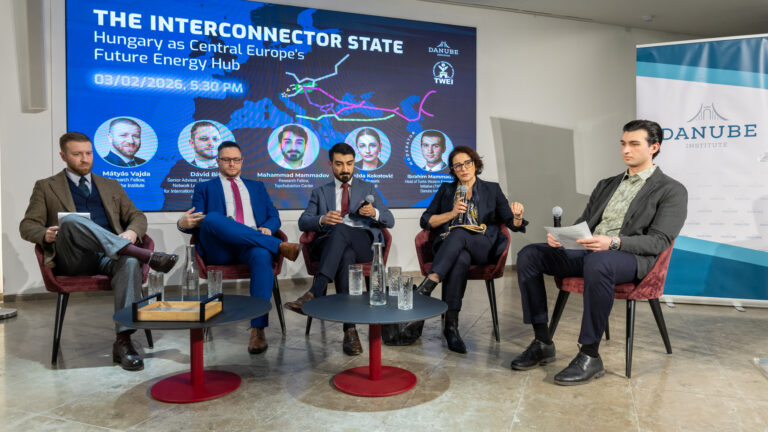The conversation began with the fundamental question: Is education about culture or innovation? For State Secretary Balázs Hankó, the answer was both. Hungary, he argued, has tradition coded into its DNA, but must also become a competitive laboratory for knowledge in an era shaped by AI. CEO of Milestone Institute Péter Palasics agreed, adding that culture and innovation cannot exist without each other.
When asked how much a Hungarian diploma is worth compared to one from abroad, Hankó shifted focus: ‘It’s not the diploma itself but success that matters.’ He pointed to employment data showing that both university graduates and skilled workers can succeed if they keep developing their abilities. Palasics countered that too much weight is still placed on the diploma itself. The value of a degree, he argued, depends less on prestige and more on what students learn and who they meet during their studies.

On rankings, Hankó emphasized that Hungary’s reforms aim to make universities more competitive environments, not just to climb international lists. Still, he noted, improved rankings can raise the value of degrees and attract extra resources. He cited strong results in physics and mathematics and highlighted Óbuda University’s rapid rise. Palasics acknowledged world-class fields such as medicine but noted that in other areas, particularly the social sciences and humanities, funding and competitiveness lag behind.

The role of scholarships and elite education also sparked debate. Palasics pointed to initiatives like Milestone, where scholarships ensure that financial background does not limit access, and where the most talented students are guided toward the world’s top universities. Hankó stressed the state’s responsibility to provide opportunities for all, from specialized colleges to PhD tracks, so that students can progress according to their talents.
Finally, they addressed whether the state should influence which professions receive more support, such as in IT or teaching. Hankó defended targeted state funding, highlighting a surge in IT enrolments after reforms. Palasics warned against rigid control, noting the global competition for talent, but agreed that since higher education is publicly funded, society has a right to debate priorities.

In the end, both agreed that Hungarian higher education must walk a fine line: offering wide access while nurturing excellence, and preparing students not just to earn diplomas, but to succeed in a globalized world.
Related articles:







